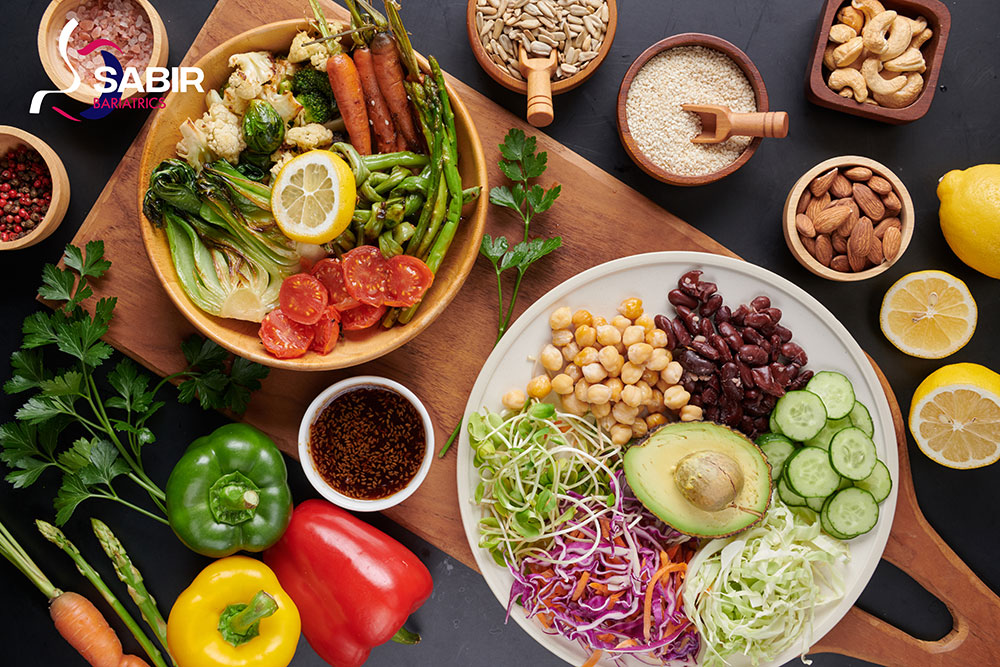From Fast Food to Fuel: Transforming Your Relationship with Food After Weight Loss Surgery
May 22, 2025

Weight loss surgery not only transforms you physically, it also reshapes your entire lifestyle. One of the most important changes is your eating habits. Before surgery, food may symbolize comfort and convenience; but after surgery, it becomes the fuel that powers a healthier and stronger you.
This sudden change is not easy, but it is essential. In this blog, Dr. Sabir, one of the best bariatric surgeons in Novi, MI, shares guidance on how to transition from craving fast food and junk food to embracing healthy eating habits that support your long-term wellness.
Why Does Your Relationship with Food Matter?
Before weight loss surgery, eating habits often involve fast-food cravings, emotional eating, or oversized portions. But after the surgery, your stomach has a smaller capacity, and your body requires thoughtful nutrition. It’s not just eating less, it’s about eating smarter. Changing your eating habits is necessary for:
- Long-term maintenance of weight loss.
- Preventing complications.
- Boosting energy and recovery.
- Building a sustainable lifestyle.
Considering food as a fuel, a thing that powers your body rather than controls it, is one of the biggest mindset shifts that you should make during your post-surgery period.
Adapting New Diet and Food Plan Post-Bariatric Surgery in Novi, MI
Here is a detailed map guiding how to adopt a new diet and food plan post-bariatric surgery in Detroit, MI.
Reset Your Eating Habits
For the first few months after surgery, your diet goes through stages starting with liquids, moving on to soft foods, then onto solid meals. This approach isn’t made just to heal your body but also for giving you an opportunity to break older habits and form healthier ones.
During this period, many people come to realize that they now prioritize the nutritional value of the food, rather than eating out of boredom, craving, or stress. This early stage resets your older habits and helps you learn new ways to approach nutritional diet.
Adding Real Food Instead of Fast Food
Fast food seems like a quick option, but instead, it is high in fat, salt, and empty calories that don’t satisfy your nutritional needs properly. After surgery, the focus should be on quality over quantity. You’ll start to prioritize:
- Low-glycaemic vegetables like broccoli, spinach, and zucchini.
- Lean proteins like chicken, fish, tofu, and turkey.
- Whole grains like oats and quinoa in moderation.
- Drinking enough water between meals and more liquids to stay hydrated and energized.
Reading nutrition labels, meal preparation, and cooking at home become essential parts of your new routine. Fast food can be an occasional option but it can not be your go-to choice.
Recognize Your Triggers
Food is an emotion, and many people find it hard to prevent emotional eating even after the surgery. Stress, anxiety, loneliness, and celebrations can also lead to poor food choices. Learning to recognize these triggers is key, and some beneficial strategies that can help you are:
- Keep a food and mood journal.
- Practice mindful eating by chewing slowly and properly.
- Seeking professional support from a therapist or nutritionist.
- Developing new coping mechanisms, like walking and meditation.
- Finally enjoying eating food for nourishment, rather than out of stress or anxiety.
Create a New Food Identity
Before surgery, food may be tied to a sense of lost control. Afterward, it becomes a source of strength and health. As surprising as it may sound, many post-surgery patients describe developing a whole new relationship with food.
During your post-surgery journey, you can
- Try new healthy recipes.
- Join support groups, exchange meal ideas.
- Celebrate non-scale victories like feeling more energized or fitting into old clothes.
- Rebuild your kitchen with whole, unprocessed ingredients.
By taking these small steps, you will start craving foods that offer lasting nutritional support and not just temporary satisfaction.
Long-Term Success
Before surgery, many people think of food as their biggest enemy, the fat. But instead, food can be your biggest ally after the surgery. You just need to consume it properly and with good habits. Some long-term tips are:
- Planning meals beforehand to avoid impulsive choices.
- Balancing carbs, protein, and healthy fats.
- Eating slowly and stopping when enough.
- Eating timely even in hectic schedules.
The more your body gets proper fueling, of food, the more confident and empowered you will feel.
Final Thoughts
Transforming your relationship with food after weight loss surgery is not a quick fix; it is an evolutionary journey of lifelong commitment. You set the foundation for lasting health and happiness, by moving away from habitual fast-food eating and embracing food as fuel for an energized body.
You don’t just change the content of your plates but your mindset and routine too. And this mindful change is the first and most important one towards a stronger and healthier you.
At Sabir Bariatrics, you can find the best and most advanced Bariatric Surgery Detroit MIcan ever offer. For booking or health consultation, connect with us today!

